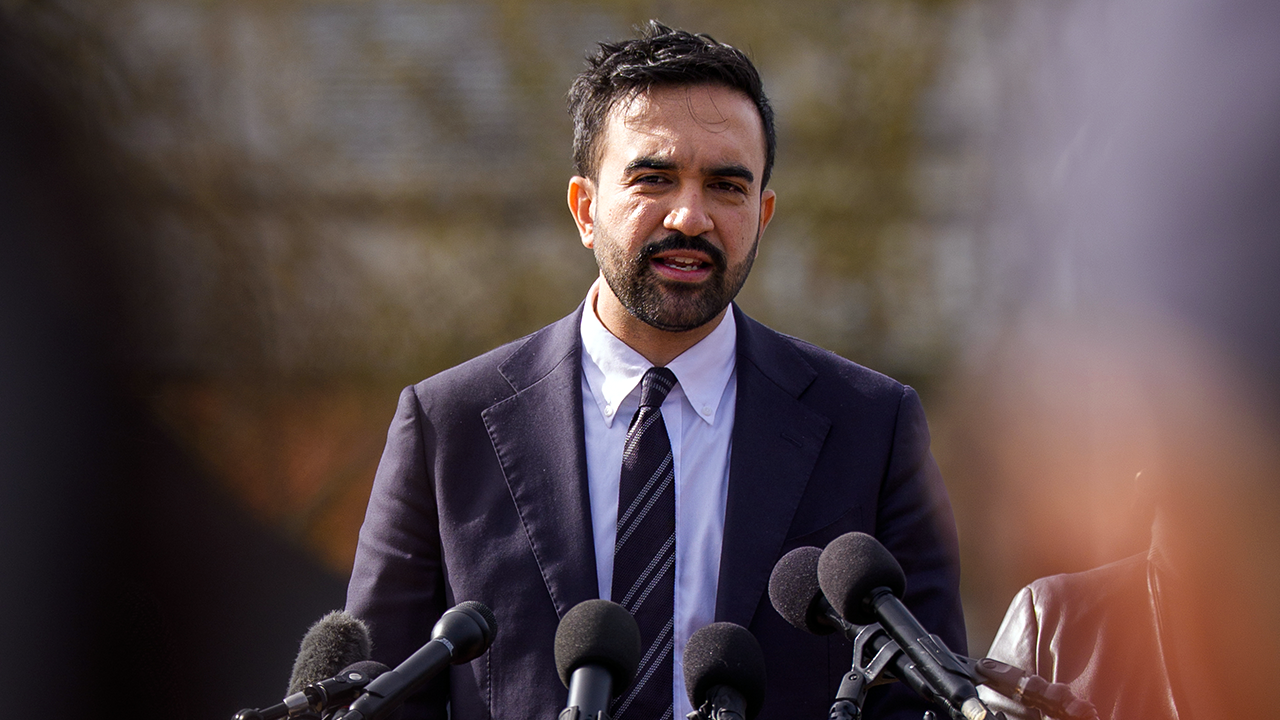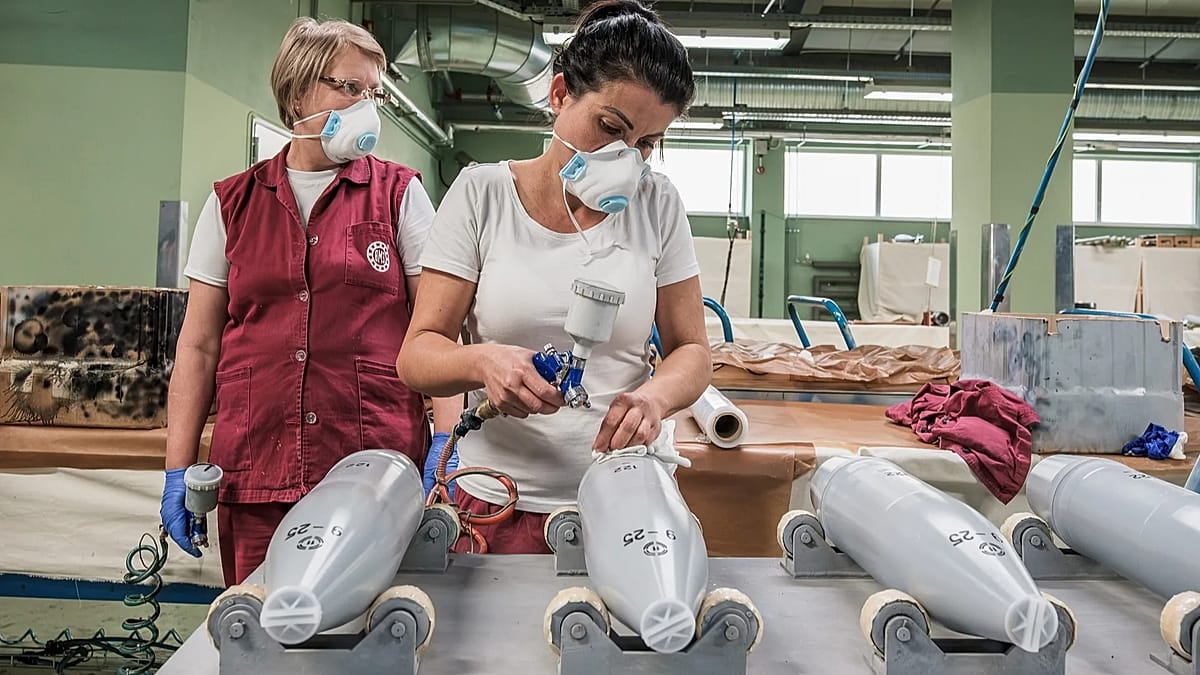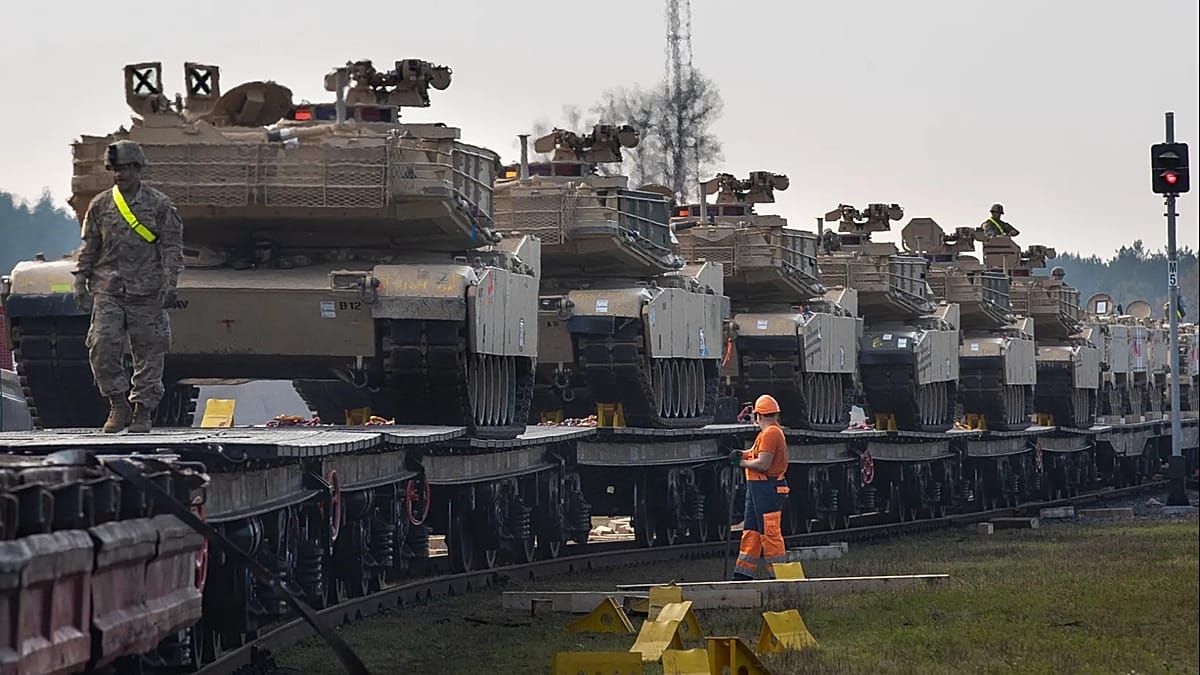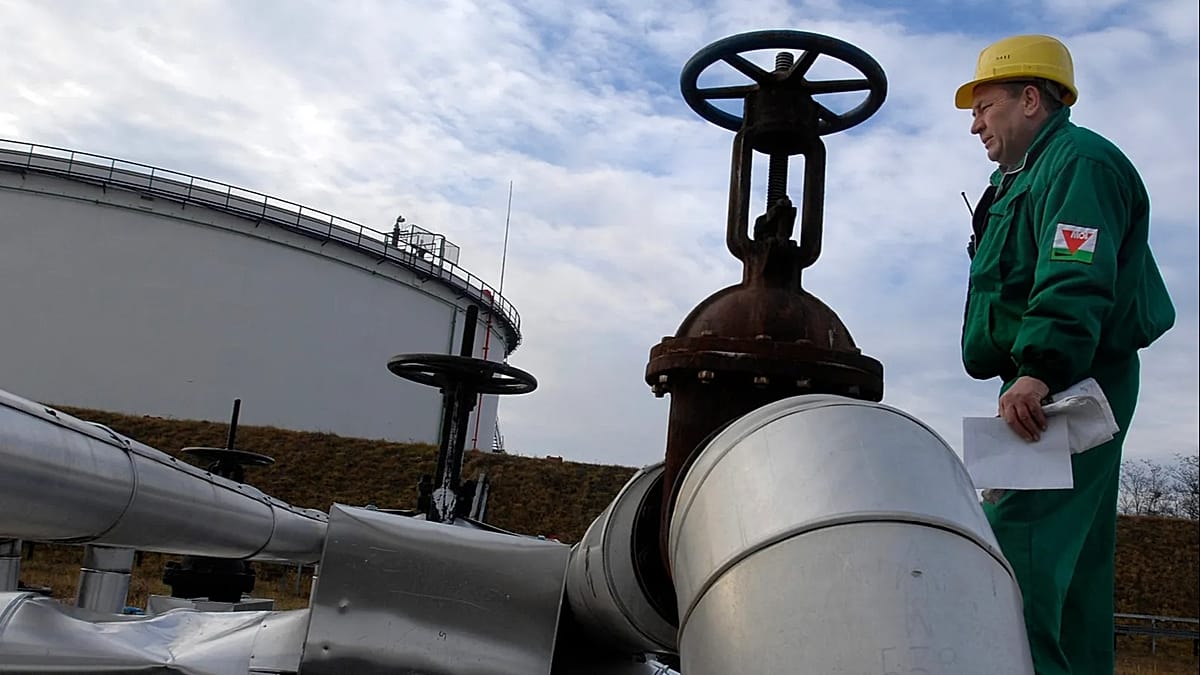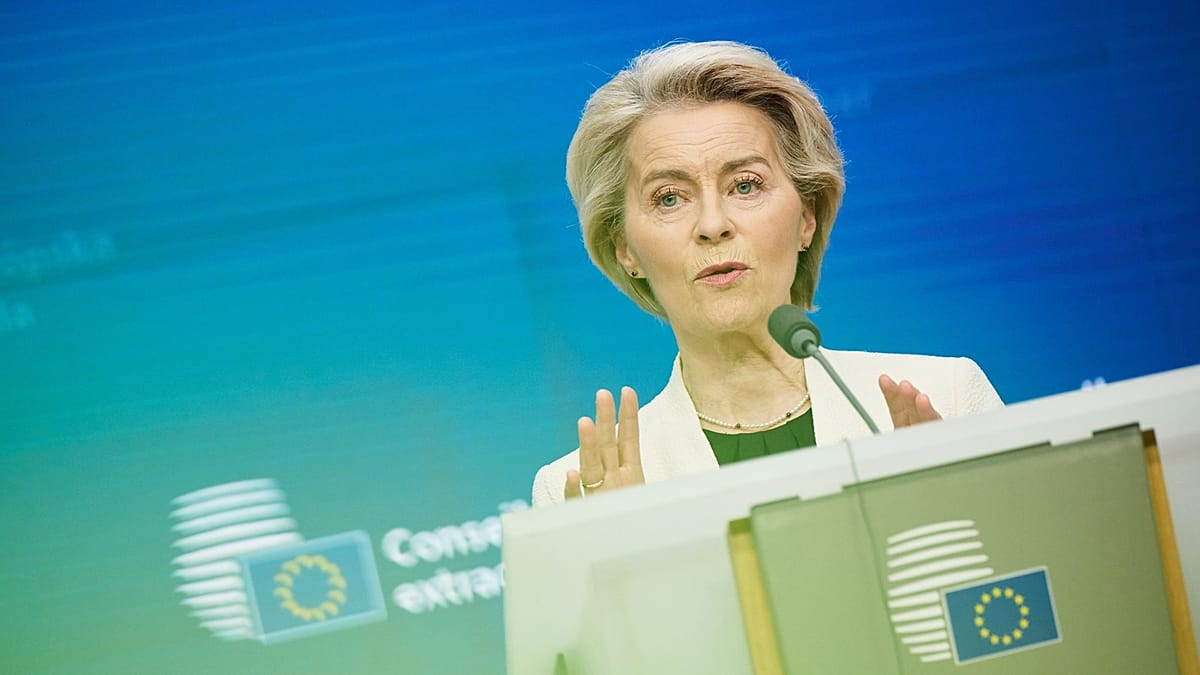Published on
•Updated
The EU says it wants 600,000 people to be upskilled or reskilled for the defence industry by 2030, with the sector struggling to recruit as fast as is needed to meet the bloc’s rearmament needs.
The upskilling plan is part of several measures outlined by the European Commission on Wednesday as part of its Defence Industry Transformation roadmap, which also includes a so-called Talent Platform to support traineeships in dual-use and defence SMEs, small mid-caps, startups and scaleups.
“We need to secure the skills that we need for defence,” a Commission official told Euronews on condition of anonymity.
“This is becoming a major bottleneck as all the defence actors are scrambling to produce more and more innovative products and skills shortages have led to fierce competition from both within the industry and of course between sectors.”
The EU is racing to rearm – primarily with European-made equipment – before the end of the decade, by which time it estimates Russia could be in a position to attack another European country. But one of the major issues is a shortage of skilled labour, the result in part of decades of defence underinvestment by EU member states.
After years of decline, Europe’s defence industry job market started growing again in 2022 after the start of Russia’s full-scale invasion of Ukraine, which spurred EU countries pledging to significantly ramp up their defence spending.
In 2023, the EU defence industry generated around 581,000 jobs, and data from the European Defence Agency released earlier this year showed that while postings in the defence sector have eased somewhat since a late 2022 peak, they remain 41% above 2021 levels.
However, the Commission’s latest roadmap says the labour and skills gap in the sector “threatens its operational capabilities and hence impacts EU’s security”.
This shortage, it added, is a problem for both the supply side, where disruptive technologies such as AI and quantum are being developed for defence applications, and the demand side, where armed forces and procurement bodies need expertise to quickly acquire and integrate these new systems.
Preparing for war
To bridge the gap, the EU executive wants to set up a Skills Guarantee pilot to help “workers from the automotive sector and its related supply chains undergoing restructuring or who are at risk of unemployment move into jobs in growing strategic sectors such as defence”, the roadmap states.
Andrius Kubilius, the European Commissioner for defence, told journalists that the measures aimed to “upskill around of 12% of the existing defence and aerospace workforce each year and to reskill 600,000 people for the defence industry by 2030”.
The Commission is also seeking to establish an EU Defence Industry Talent Platform to support traineeships through a system of vouchers. The pilot scheme plans for 300 such vouchers to be delivered to students.
“The idea is really to offer opportunities to curious and bright minds to actually get acquainted with what it takes to embed innovation in the defence ecosystem,” the Commission official said.
The last prong of the strategy is to leverage existing EU online learning institutions, such as the EUSPA Space Academy and Digital Skills Academies, to foster defence-related skills.
The Commission also envisages establishing a standalone EU Defence Industry Skills Academy, but not before 2028, when the bloc will enter a new budgetary period.


